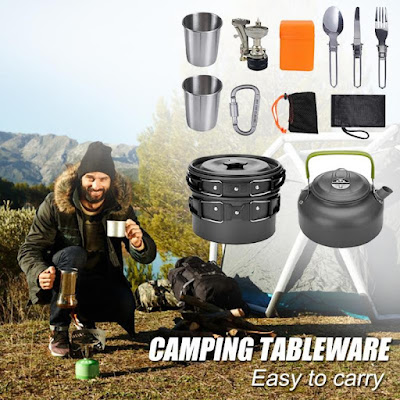5 Tips for Beginner Fishing Success
Fishing is a popular outdoor activity enjoyed by millions of people around the world. It's a great way to get outside connect with nature and maybe even catch dinner! If you're new to fishing getting started can seem a little daunting. But fear not - with a few tips and some basic equipment you'll be reeling in fish in no time. In this article we'll share 5 tips for beginners to start fishing.
1- Choose the right equipment
The first step to starting fishing is to choose the right equipment. You don't need to spend a lot of money to get started. A basic rod and reel combo will work just fine. Look for a spinning rod that's about 6-7 feet long and paired with a spinning reel. This type of gear is easy to use and is versatile enough to be used in many fishing situations.
You'll also need some fishing line. The type of line you choose will depend on the fish you're targeting and the location you're fishing in. Monofilament line is a good choice for beginners because it's easy to handle and inexpensive.
Other basic equipment you'll need include hooks sinkers and bobbers. These items can be purchased at any fishing supply store.
2- Choose the right location
Choosing the right location is key to having a successful fishing trip. Look for places with plenty of fish and easy access. Public fishing piers ponds and lakes are great places to start.
Make sure you have all the necessary permits and licenses required to fish in your chosen location. You can check with your state's fish and wildlife agency to find out what permits are required.
3- Learn basic techniques
Learning basic fishing techniques is essential to having a successful fishing trip. Start by learning how to cast your line. Practice your casting technique in a field or backyard before hitting the water.
Another basic technique is how to set the hook. When a fish bites your bait you'll need to quickly jerk the rod to set the hook in the fish's mouth. This takes a little practice but it's essential to catching fish.
4- Be patient
Fishing requires patience. It's not uncommon to spend hours waiting for a bite. Don't get discouraged if you don't catch anything right away. Use the time to enjoy the outdoors and practice your casting technique.
5- Stay safe
Finally it's important to stay safe while fishing. Always wear a life jacket when fishing from a boat or near deep water. Be aware of your surroundings and watch out for slippery rocks or uneven terrain.
In addition be mindful of the weather. Don't fish during lightning storms and be prepared for changes in the weather. Bring sunscreen a hat and plenty of water to stay hydrated.
In conclusion fishing is a fun and rewarding activity that's easy to get started with. By following these 5 tips for beginners you'll be well on your way to catching fish and enjoying the great outdoors . Remember to choose the right equipment choose the right location learn basic techniques be patient and stay safe. With a little practice and perseverance you'll be a skilled angler in no time.
What are the 3 types of fishing?
Freshwater Fishing: This type of fishing takes place in rivers lakes and other freshwater bodies. Anglers usually catch fish such as trout bass pike and catfish in freshwater.
Saltwater Fishing: This type of fishing takes place in saltwater bodies such as oceans seas and bays Saltwater fishing can be done from the shore a pier or a boat and anglers target a wide range of fish such as tuna marlin snapper and halibut.
Fly Fishing: This type of fishing is a specialized form of freshwater fishing that uses a lightweight fly rod reel and artificial flies made from feathers and other materials to mimic the movements of insects on the water's surface. Fly fishing is often associated with trout fishing but it can also be used to catch other freshwater species such as salmon and bass.
How are fish preserved after they are caught?
Fish can be preserved after they are caught through various methods depending on the desired outcome and the conditions under which they will be stored. Some common methods of fish preservation include:
Refrigeration: This involves keeping the fish in a chilled environment usually around 0-4°C (32-40°F), to slow down the growth of bacteria and other microorganisms that can cause spoilage. Fish can be stored in a refrigerator for a few days but it's best to consume them as soon as possible for maximum freshness.
Freezing: Freezing fish involves lowering the temperature to below -18°C (0°F) to prevent the growth of microorganisms and preserve the fish for longer periods. Frozen fish can be stored for several months or even up to a year depending on the type of fish and the quality of the freezing process.
Canning: This involves cooking fish and sealing them in airtight containers usually with added preservatives such as salt or oil to prevent spoilage. Canned fish can be stored at room temperature for several years and are convenient for long-term storage.
Smoking: This involves exposing fish to smoke from burning wood or other materials which imparts flavor and also acts as a preservative. Smoked fish can be stored in a cool dry place for several weeks and are often used in recipes or eaten as a snack.
Drying: Drying fish involves removing the moisture from the fish by exposing it to air or heat which inhibits the growth of microorganisms and extends its shelf life. Dried fish can be stored at room temperature for several months and are commonly used in many cuisines around the world.








